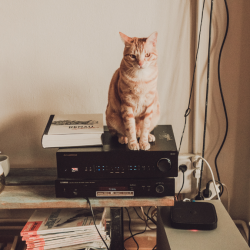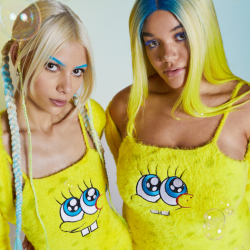Today, the world of work has a fresh vocabulary. Last year’s mass exodus was dubbed ‘The Great Resignation’ after 47.4 million Americans quit their jobs. It’s a story sweeping across a global stage—markets in meltdown, growth stagnating at a snail’s pace. There’s a ‘war for talent’, with businesses battling to fill roles in a scarcity of skilled candidates, and forced to dig deep to retain current employees. And forget sharing the load. Many of those sticking around say they’ll be sticking strictly to their job specs—something the kids these days call ‘quiet quitting’.
Hustle culture is dead. Who’s holding the knife? Most would point to the pandemic. In two short years, our perspective of the workplace, the world, and crucially, ourselves, has shifted in ways we couldn’t have predicted pre-Covid-19. But the pandemic is the catalyst. The culprit is us. We’ve severed the symbiotic cord between selfhood and livelihood. Just like Dolly P, we’re sick of the 9-5 — we’re in The Age of Anti-Ambition.
But I’m getting ahead of myself. To understand how we got to where we are now, let’s head back to 2019.
The ‘toxic productivity’ takeover
Six am. Rise and grind. You check your emails, chug coffee, run to make the early train. Neon signs at your local WeWork urge you to ‘Get Shit Done’, so you do. More meetings, more caffeine. More tasks checked off, more added. You get home late and work well into the night. At last, you sleep (poorly). Next morning, repeat.
So you’re tired. So what? Ambition, grit and hustle are the new Holy Trinity. Your worth predicates on your professional achievements—and to bleed is to succeed. In 2016, Yahoo ex-CEO Marissa Mayer posed that working a 130-hour week is possible, “if you’re strategic about when you sleep, when you shower, and how often you go to the bathroom.” “Hustle is putting it all on the line,” Gary Vee, the poster boy of hyper-productivity boasts, “Do you know how obnoxiously thick my skin is? You can punch me in the face 8,000 times. I’m here to get punched.”
This masochistic work ethic is a linchpin of the innovating, grinding and hacking machine of the tech community. It’s tech that first blurred the boundaries between work and home — the ability to reply to emails or answer calls anywhere and at any time (whether you wanted to or not). And it’s tech’s most polarising but prolific figures that elevate unrelenting productivity as a path to true liberation.
“You’ll get knocked down over and over and over again, and you get back up,” Elizabeth Holmes told 1500 people at 2015’s Forbes Under 30 Summit. Elon Musk tweeted “nobody ever changed the world on 40 hours a week” to his millions of followers. “Your life should be about creating your life’s work,” espoused Adam Neumann, founder of WeWork. “When you do what you love you find higher levels of satisfaction that can compensate for lower income. I think most people do what they love because it’s really important to them.”
Of course, we know that most people work because they have no alternative. In the UK, 914,000 people suffer from work-related stress, anxiety or depression. A 2019 study from the Brookings Institution found that 44% of workers (53 million people) in the US earn low wages, a third of which live 150% below the federal poverty line. In Japan, death from overwork is so common that it has its own name: Karoshi.
“The vast majority of people beating the drums of hustle-mania are not the people doing the actual work,” Basecamp founder David Heinemeier points out. “They’re the managers, financiers, and owners.” And even if these higher-ups do hustle, for them, working long hours is a choice. “For the rich […] building wealth is a creative process, and the closest thing they have to fun,” writes Economist Robert Frank in The Wall Street Journal. Tressie McMillan Cottom said it best: “Everyone is hustling, but everyone cannot hustle the same.”
Yet hustle culture itself tells us that we can. This is the great myth of meritocracy; the idea that anyone can achieve the same results through grind and grit alone. In this way, companies bottled ambition as a cure-all, for all. “You are your own boss,” Uber encourages prospective employees. “A flexible opportunity that you can customise to fit your lifestyle,” promises UK food delivery company, JustEat. The #girlboss-ification of social media and the Influencer Effect can’t be overlooked either; a poreless parade of Fashion Nova royalty, crypto-bros and mommy vloggers, promising the same stardom if you just work hard enough. After all, we all have “the same amount of hours in a day as Beyonce.” It’s all snake oil — the reality of gig economy jobs for the majority of workers is low wage, inconsistent work and exploitation.
The Gen Z spark
Hustle culture hinges on capitalism, an economic system that prioritises profit above all else — even human life. The pandemic revealed that this system is not merely in crisis, but structurally flawed. It exposed our institutional lack of preparation. It emphasised that the neoliberalist West places more value on the free market than public welfare. It relied on essential workers to keep the world above water, making it clear that for them, hustling is not an option. And for the rest of us who were told in explicit terms that our job is not essential — not a doctor or a bus driver or a funeral director, or something else society would cease to function without — the grind mentality lost all gravitas. What was the point? Why should we, as Kim Kardashian put it, get our “fucking ass up and work?”
Burning the candle at both ends will lead to burnout. No one knows this better than millennials, who make up the majority of the current workforce. In her viral essay, cultural critic Anne Helen Petersen calls them the burnout generation. Born in an age of economic and political stability, millennials were promised that academic overachievement and extracurricular excellence would reward them with fulfilling jobs. The reality? “Far less saved, far less equity, far less stability, and far, far more student debt.”
As a millennial, I relate all too well. In primary school, I was earmarked as a ‘gifted child’ — I wore that medal for years before I realised it had become a noose. It’s an age-old taboo: never say ‘perfection’ is your biggest weakness in the interview room, but for myself and many of my millennial peers, it was the truth. Perhaps it stemmed from an innate desire to prove the stereotypes wrong. The pressure to overperform, to go the extra mile in hopes of being noticed by a higher-up; those were the rules of the rat race. I’d never considered that my compulsion to overcommit and overextend could be symptomatic of ADHD. I worked hours past EOP, unpaid, every day. When the duties of daily life slipped by unattended — what Petersen calls “errand paralysis” — I chalked it up to my own personal failure, instead of a lack of work/life balance. The term “work/life balance” felt laughable. That wouldn’t deter us millennials; instead, we lived for the weekend, strived all the more for that sunny “someday”. “We didn’t try to break the system, since that’s not how we’d been raised.” Petersen explains. “We tried to win it.” Somehow I’d bought into the hustle mentality without ever knowing I’d subscribed.
It seems clear now that the recent, rapid rise of the anti-work movement was only a matter of time. It’s no coincidence either that its prominence in the zeitgeist coincided with Gen Z entering the workforce. Historically, this is the prime time for companies to exploit workers eager to climb the career ladder — but Gen Z are different. They were the spark.
The first digitally-native generation, Gen Z are progressive, pro-government, and activist-minded. Unlike their millennial predecessors, they’re comfortable challenging the status quo. From climate catastrophe and gun violence to global unrest, their world has always felt unsafe. As Michael Stone wrote for Forbes, since 2020, Gen Z have faced “the intersection of the worst health crisis in over a century, the most serious confrontation with systemic racism since the 1960s and the worst economic slump in 70 years.” For this generation, change is not a choice — and they won’t wait for anyone else to drive it. “Gen Z was practically born with tools and technologies to get their voices heard,” says EY’s Marcie Merriman. “They want to be part of the solution.”
Tools like TikTok, where quiet quitting exploded across the algorithm this summer and into our working lives.“You’re no longer subscribing to the hustle culture mentality that work has to be your life,” @zkchillin explains in his viral video (above). In the months since, anti-work sketch comedies have racked up millions of likes and views. Skit accounts like @saraithreads, whose Gen Z character Veronica isn’t afraid to speak her mind. “Respectfully, Susan, it’s 2022,” she tells her boss. “We’re acting our wage, so don’t give me extra work.”
The pandemic held up a mirror for us to peer at our own mortality. It shifted our perspectives: do we want to spend our lives on autopilot? It changed our priorities: when a contagion can upend the entire world, isn’t time better spent enjoying today instead of striving for tomorrow? It untethered our identities: who are we outside of what we do? To have a purposeful life, do we need to be productive 24/7?
As economies and businesses worldwide recover, a plethora of new jobs and new ways of thinking offer people greener fields to find purpose.“The power pendulum has been, subtly but perceptibly, swinging toward employees,” remarks Professor of Management Practice in Organisational Behaviour, Lynda Gratton. “The average employee is operating with a higher sense of personal agency.”
The renaissance of relaxation
As we ease off the pedal and put a halt to the martyrdom of endless work ennui, what does life post-workism look like?
Whilst ‘hustling’ is a word that originated in the West, we’ve seen the gruelling grind mentality echoed across the globe. Many Asian countries receive praise for their relentless work ethic, but attitudes in the East are changing too.
In 2014 The Wall Street Journal reported that “the average Chinese worker works between 2,000-2,200 hours every year in China.” This year, China saw a surge in solidarity in its version of quiet quitting, tangping (躺平) (or “lying flat”). Burnout has left China’s youth with both the want and the will to pursue a slower pace of life. The untimely brain haemorrhage of a 25-year-old content moderator whilst on the job sparked controversy over China’s brutal 996 work culture, where people work from 9am-9pm, six days a week. In 2021, China’s top court and labour ministry stepped in and ruled this practice illegal.
Japan’s Karoshi culture is so prevalent that the government accepts 200 workplace injury claims for it annually. In 2013, Miwa Sado was one such victim — a 31-year-old journalist who worked herself to death after racking up 159 hours of overtime. “Japanese society is collectivist and hierarchical,” Hitotsubashi University’s Professor Hiroshi Ono explains. “Many people refrain from taking holidays because they are afraid that it will disrupt the group harmony.” Yet the Satori sedai, Japan’s own Gen Z, are changing the script. They’re named after the Buddhist ideal of enlightenment and care little for upward mobility. “The Satori generation are not interested in earning money, career advancement and conspicuous consumption,” remarks Michael Hoffman for the Japan Times.
It seems that all over the world, people are longing for the space to rest, recover and rediscover themselves. Back in the West, another movement swept across social media this summer, calling for black women to reject the Strong Black Woman stereotype. Unlike quiet quitting, Jennimai Nguyen says “the Soft Life isn’t confined to scaling back your career efforts. It’s about seeking peace first in all life aspects — which can include quitting your job, or giving less of yourself professionally.” “It’s about denouncing hustle culture,” adds businesswoman Kimora Brown, “Capitalism is not soft living. It’s anti soft-living.”
Others, like myself, have searched for new horizons overseas. Forbes reported that there are currently an estimated 35 million digital nomads working worldwide (and counting). Travelling across Asia over the last six months, the other nomads and backpackers I’ve met all say the same thing. They’ve moved thousands of miles away from home in search of a laid-back lifestyle. Isolation helped them realise that experiences matter more than their professional achievements ever could. And with more companies establishing work from anywhere policies and countries vying for nomads with alluring visas, the ability to find work that fits around your lifestyle has never been more convenient.
We know that what we do can be incredibly fulfilling. The rise of self-care gives us space to succeed in our careers without self-flagellation. It’s not only possible, but necessary to find meaning in who we are outside of the 9-5. After all, Henry Ford introduced the 9-5 in 1926 — almost a century later, isn’t it high time for something new? Recently, 100 companies in the UK signed up for a permanent four-day working week for all employees with full pay intact. For businesses prioritising employee wellbeing, it’s a step in the right direction. I’ll be looking forward to reading an update on the outcome, and seeing what the future of work holds in store.
Featured image: Life Of Pix / Pexels































